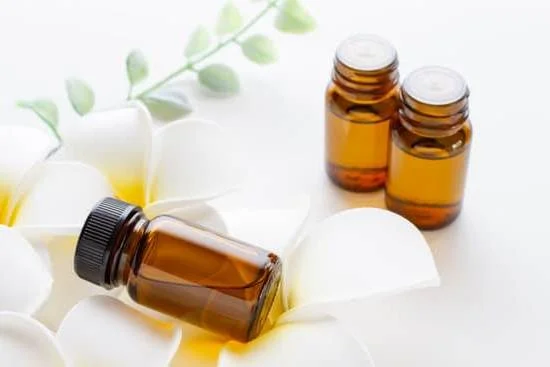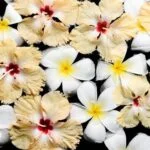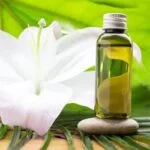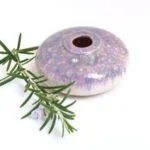Are aromatherapy diffusers also humidifiers? This is a common question among individuals looking to create a comfortable and healthy environment in their living spaces. Both aromatherapy diffusers and humidifiers play a significant role in improving the overall well-being of individuals.
Aromatherapy diffusers are known for their stress-relieving and mood-enhancing properties, while humidifiers are essential for maintaining optimal humidity levels in the air. In this article, we will explore the functions, benefits, and differences between these two devices to help you make an informed decision about which one is right for your needs.
Aromatherapy diffusers are devices that disperse essential oils into the air, providing therapeutic benefits through inhalation. They come in various types such as ultrasonic, nebulizing, heat, and evaporative diffusers, each offering unique features to cater to different preferences. On the other hand, humidifiers are designed to add moisture to the air, addressing issues related to dry skin, respiratory health, and overall comfort. With different types available including warm mist, cool mist, and ultrasonic humidifiers.
The benefits of both aromatherapy diffusers and humidifiers are vast and can greatly contribute to improving one’s quality of life. From stress relief and improved sleep with aromatherapy diffusers to reduced snoring and relief from dry skin with humidifiers, these devices have proven their effectiveness in creating a more comfortable living space.
In the following sections of this article, we will delve deeper into the specific benefits offered by each device and provide guidance on choosing the right one for your individual needs.
What Is an Aromatherapy Diffuser?
Aromatherapy diffusers are devices that are designed to disperse essential oils into the air, creating a pleasant and fragrant atmosphere. These diffusers are popular for their ability to spread the aroma of essential oils throughout a room, contributing to a relaxing and calming environment. There are several types of aromatherapy diffusers available in the market, each with its own unique functionality and features.
Types of Aromatherapy Diffusers
Ultrasonic Diffusers
Ultrasonic diffusers work by using ultrasonic vibrations to break down essential oils into microparticles that are then released into the air as a fine mist. This type of diffuser is known for its ability to preserve the therapeutic properties of essential oils.
Nebulizing Diffusers
Nebulizing diffusers use pressurized air to atomize essential oils into tiny particles without the use of heat or water. This method allows for a more concentrated and potent dispersal of essential oil molecules.
Heat Diffusers
Heat diffusers utilize gentle heat to evaporate essential oils and release their aroma into the air. While they are often simple and easy to use, some argue that the heat can alter the chemical composition of the oils.
Evaporative Diffusers
Evaporative diffusers operate by allowing essential oils to evaporate at a rapid rate, typically using a fan or natural airflow. As the oils evaporate, they release their fragrance into the room through diffusion.
Overall, aromatherapy diffusers play an important role in promoting relaxation and well-being through the dispersion of aromatic essential oils. Each type of diffuser offers its own set of benefits and features, allowing individuals to choose one that best suits their preferences and needs.
Benefits of Aromatherapy Diffusers
Aromatherapy diffusers offer a multitude of benefits that can improve the overall well-being of individuals and create a more comfortable living environment. One of the most well-known advantages of using aromatherapy diffusers is their ability to promote relaxation and reduce stress. The use of essential oils in diffusers can have a calming effect on the mind and body, making them perfect for unwinding after a long day or creating a peaceful atmosphere during meditation or yoga practice.
Another significant benefit of aromatherapy diffusers is their potential to enhance sleep quality. Certain essential oils, such as lavender and chamomile, are known for their calming and sedative properties, which can help individuals fall asleep faster and improve the overall quality of their sleep. This can be particularly beneficial for those who struggle with insomnia or have difficulty winding down at the end of the day.
In addition to promoting relaxation and better sleep, aromatherapy diffusers also have the potential to uplift mood and improve mental clarity. Citrus oils, such as lemon or orange, are often used for their invigorating and refreshing scent, which can help boost energy levels and improve focus.
This makes aromatherapy diffusers a valuable tool for creating an uplifting atmosphere in workspaces or combatting feelings of lethargy during gloomy days. Overall, the benefits of using aromatherapy diffusers extend beyond just creating pleasant scents, making them a popular choice for those looking to enhance their overall well-being.
What Is a Humidifier?
A humidifier is a device that increases the moisture level in the air, helping to prevent dryness that can cause irritation in many parts of the body. There are several types of humidifiers available in the market, including warm mist, cool mist, and ultrasonic. Each type has its own set of benefits and considerations when it comes to choosing the right one for your needs.
Benefits of Humidifiers:
- Improved respiratory health: Humidifiers help to moisten the air which can alleviate symptoms of dryness in the nose, throat, and sinuses. This can be especially helpful during cold and flu season.
- Relief from dry skin: Dry air can cause skin to become dry and irritated. Using a humidifier can help to maintain moisture levels in the skin, preventing issues such as chapped lips and dry hands.
- Reduced snoring: Keeping the airways moistened with a humidifier can reduce snoring by lubricating the throat and reducing congestion.
Humidifiers are especially beneficial in climates with low humidity levels or during winter months when indoor heating systems can cause the air to become excessively dry. The choice between warm mist, cool mist, or ultrasonic humidifiers will depend on individual preferences and needs. It’s important to consider factors such as maintenance requirements, noise levels, and energy efficiency when selecting a humidifier for your home.
Benefits of Humidifiers
The benefits of using a humidifier in your home or office are numerous and can greatly contribute to creating a more comfortable and healthier environment. Here are some key benefits of using a humidifier:
- Improved respiratory health: By adding moisture to the air, humidifiers can help alleviate symptoms of respiratory conditions such as asthma, allergies, and sinus congestion.
- Relief from dry skin: Dry air can cause skin to become dry, itchy, and irritated. Using a humidifier can help keep the skin hydrated and moisturized.
- Reduced snoring: Keeping the airways moist with a humidifier may reduce snoring by preventing the throat from becoming too dry during sleep.
In addition to these specific benefits, maintaining an optimal level of humidity in the air can also help prevent damage to wooden furniture, musical instruments, and other items that are sensitive to dry conditions. Overall, using a humidifier can contribute to creating a more pleasant and comfortable living or working space.
It is important to note that different types of humidifiers offer varying benefits based on their design and functionality. Whether you choose a warm mist, cool mist, or ultrasonic humidifier will depend on your specific needs and preferences. It’s essential to consider factors such as room size, noise level, ease of maintenance, and safety features when selecting the right humidifier for your space.
Aromatherapy Diffusers vs Humidifiers
The debate between aromatherapy diffusers and humidifiers often arises due to the confusion regarding their functionalities. Aromatherapy diffusers are designed specifically to disperse essential oils into the air, often using water as a carrier. On the other hand, humidifiers are devices that emit water vapor or steam to increase moisture levels in the air. Despite their different purposes, there is some overlap in the benefits provided by both devices.
One of the key differences between aromatherapy diffusers and humidifiers is their primary function. Aromatherapy diffusers are intended for therapeutic use, aiding in stress relief, improved sleep, and mood enhancement through the inhalation of essential oils. On the contrary, humidifiers focus solely on increasing humidity levels in a room or space, benefiting individuals by relieving respiratory issues, dry skin, and reducing snoring.
However, some modern aromatherapy diffusers incorporate a humidifying function alongside their primary purpose of dispersing essential oils. These hybrid devices can act as both an aromatherapy diffuser and a humidifier simultaneously. It’s important to note that not all aromatherapy diffusers have this additional feature, so it’s essential to check the product specifications before making a purchase decision.
| Differences | Features |
|---|---|
| Aromatherapy Diffusers | Disperse essential oils for therapeutic benefits |
| Humidifiers | Focus on increasing moisture levels in the air |
Are Aromatherapy Diffusers Also Humidifiers?
A common question that arises when considering aromatherapy diffusers and humidifiers is whether these devices can serve dual functions. An aromatherapy diffuser is designed to disperse essential oils into the air, providing various therapeutic benefits. On the other hand, a humidifier is meant to add moisture to the air, addressing issues related to dryness and promoting better respiratory health. Despite their distinct purposes, some individuals wonder if an aromatherapy diffuser can also function as a humidifier and vice versa.
Aromatherapy diffusers are not designed to act as humidifiers. While they both have the ability to improve the air quality within a space, they achieve this through different methods.
Aromatherapy diffusers release essential oils in the form of a fine mist or vapor, along with their therapeutic properties. Conversely, humidifiers emit water vapor to increase moisture levels in the air, which can be particularly beneficial in dry climates or during winter months when indoor heating systems tend to decrease humidity levels.
Understanding the primary functions of each device is crucial for determining whether an aromatherapy diffuser can meet your humidity needs or if a separate humidifier is necessary. Those seeking both the benefits of essential oils and increased humidity may need to invest in both devices to create an optimal environment for well-being. Nevertheless, it’s important to research and consider individual preferences when deciding on the right device for one’s specific needs and living space.
| Aromatherapy Diffusers | Humidifiers |
|---|---|
| Disperses essential oils into the air | Adds moisture to the air |
| Therapeutic benefits such as stress relief and improved sleep | Benefits include improved respiratory health and relief from dry skin |
| Does not increase humidity levels | Increases moisture levels in the air |
Choosing the Right Device for Your Needs
When it comes to choosing between an aromatherapy diffuser and a humidifier, it is essential to consider your specific needs and preferences. Both devices offer unique benefits, but their functions are distinct, so it’s important to assess what you require in order to create a comfortable and healthy environment in your home or workspace.
Factors to Consider
One of the primary factors to consider when deciding between an aromatherapy diffuser and a humidifier is the purpose for which you need the device. If you are looking to improve the air quality in your space while also benefiting from the therapeutic effects of essential oils, an aromatherapy diffuser would be ideal.
On the other hand, if you’re primarily concerned with adding moisture to the air to alleviate respiratory issues or dry skin, a humidifier would be the better choice.
Aside from the specific function of each device, you should also take into account the size of the room where you intend to use it. Aromatherapy diffusers are typically suitable for smaller areas, while humidifiers are available in different sizes and capacities to cater to larger spaces.
Tips for Selecting the Best Device
For those who are interested in both aromatherapy and humidity control, some modern devices combine both functions into one unit. This can be a convenient option if you want to enjoy the benefits of both aromatherapy and added moisture in your environment without having separate devices taking up space.
It’s also crucial to consider maintenance requirements when choosing between an aromatherapy diffuser and a humidifier. Aromatherapy diffusers usually require more frequent cleaning due to their use of essential oils, while certain types of humidifiers may need regular filter changes or deep cleaning.
Ultimately, choosing the right device involves weighing these factors against your personal preferences and intended use. By understanding what each device offers and considering these tips for selection, you can make an informed decision that will suit your needs best.
Conclusion
In conclusion, while aromatherapy diffusers and humidifiers serve different purposes, they both contribute to creating a comfortable and healthy environment. Aromatherapy diffusers are designed to disperse essential oils into the air, providing various benefits such as stress relief, improved sleep, and mood enhancement. On the other hand, humidifiers are specifically designed to increase the moisture levels in the air, offering relief from dry skin, improving respiratory health, and reducing snoring.
It is important for individuals to understand the distinctions between aromatherapy diffusers and humidifiers when deciding which device to incorporate into their living spaces. Aromatherapy diffusers focus on dispersing essential oils for therapeutic purposes, while humidifiers focus on increasing humidity levels for health and comfort. It’s also essential for individuals to consider their specific needs and preferences when choosing between the two devices.
Ultimately, whether one chooses an aromatherapy diffuser or a humidifier, both devices play important roles in enhancing overall well-being. By incorporating these devices into their daily lives, individuals can create a more soothing and healthier living environment for themselves and their families. The use of aromatherapy diffusers and humidifiers can ultimately contribute to a more balanced mind-body connection and improved quality of life.
Frequently Asked Questions
Do Aromatherapy Diffusers Work as Humidifiers?
Aromatherapy diffusers can work as humidifiers to some extent, but they are not as effective as traditional humidifiers. The main purpose of an aromatherapy diffuser is to disperse essential oils into the air, while a humidifier is specifically designed to increase moisture levels in the air.
While a diffuser may add some moisture to the air, it may not be sufficient for larger spaces or for those with specific humidity needs.
Are Oil Diffusers Humidifiers Too?
Oil diffusers can have a humidifying effect, especially when using water-based essential oils. However, it’s important to note that not all oil diffusers function as proper humidifiers. Some diffusers are designed primarily for dispersing scents and may not be adequate for increasing moisture levels in the air.
Can a Diffuser Help With a Stuffy Nose?
A diffuser with certain essential oils like peppermint or eucalyptus can help with a stuffy nose by opening up nasal passages and providing relief from congestion. The steam released by some diffusers can also have a soothing effect on nasal passages, making it easier to breathe when feeling congested.
However, it’s important to consult with a healthcare professional about using essential oils for respiratory relief, especially if you have preexisting medical conditions or respiratory issues.

Are you looking for a natural way to improve your health and wellbeing?
If so, aromatherapy may be the answer for you.





